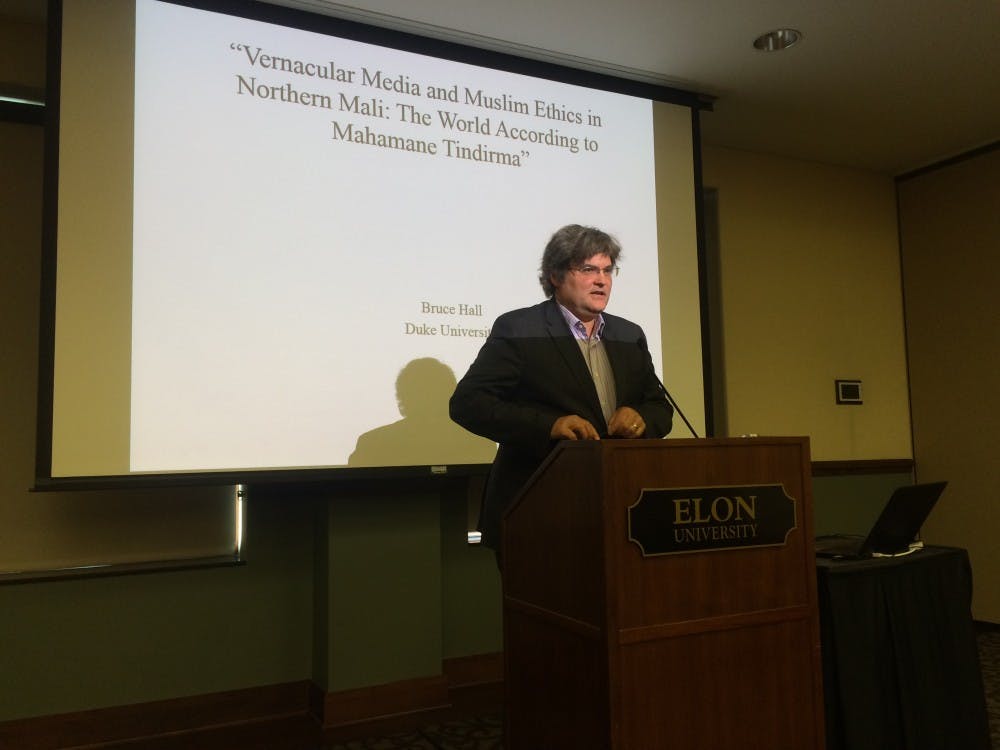Bruce Hall, associate professor of African and African-American studies at Duke University, gave a lecture Wednesday night in Lakeside Meeting Room 213 titled “Vernacular Media and Muslim Ethics in Northern Mali.”
As Hall spoke in front of 20 Elon University students and faculty, he focused the vernacular element of his lecture on the Western Songhai language, a dying tongue isolated to Northern Mali and parts of neighboring nations.
“It’s sometimes known as Songhai for short, even though there are a number of Songhai languages, and Western Songhai is but one,” Hall said. “It’s spoken in Timbuktu, a town in which the streets are literally made of sand. Sand dunes surround the town, and it’s right there on the southern edge of the Sahara Desert.”
Through his linguistic studies in Timbuktu, Hall was able to study the ways in which Western Songhai has lead to a revival in traditional culture and values, particularly those related to the Islamic faith.
Sometimes referred to as “cassette sermons” by academics, Mahamane Tindirmaand countless other Middle Eastern cultural perpetuators record themselves singing and reciting Quran verses and traditional cultural tales for relative mass distribution.
“For anyone that’s ever been to a country in the Middle East or this part of Africa, you’ll know what I’m talking about,” Hall said. “You hear these grainy, staticky recordings playing everywhere, and the words sound almost unintelligible. But they have this affective quality, and people love them.”
According to Hall, Tindirma, a folk icon in Western Songhai-speaking regions of Northern Mali, is constantly quoted in Timbuktu. Tindirma's use of song, jokes and story in combination with each other make for highly entertaining, nearly “spellbinding” audio recordings.
Because of his talents as a performer, the contents of his tapes are highly digestible and influential. In a world bent on progressive change, Timbuktu is a place that is actually reverting to older ethical values through the influence of tapes like Tindirma’s.
“Tindirma used traditional Islamic and Malian parables in his recordings and teachings, and while they bring up uncomfortable historical nuances of their culture, such as slavery and class hierarchy, people are not offended by their own personal family histories and actually acclimate to the messages of his words," Hall said.


